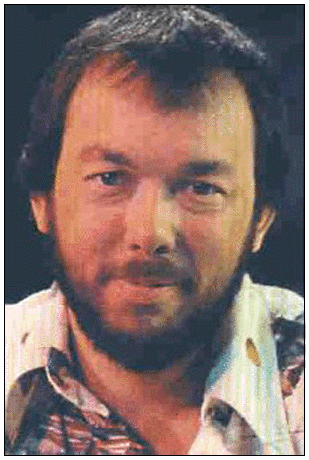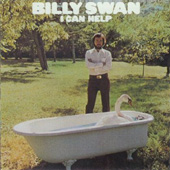|
Billy Swan Monument 8621 November 1974 Billboard: #1
The first song he ever wrote became a top 10 single. "I was 16 and wrote a poem in English class one day," he told Flippo. "A couple of years later Bill Black took it to Clyde McPhatter, who didn't like it but went ahead and cut it. That was 'Lover Please.' After that, I was spoiled. I figured show business was the easiest thing in the world." Swan moved to Memphis to continue his career as a songwriter. "The first thing I did was drive by Elvis' house," he recalled for Robert Hilburn. "I had been been there before. Everybody down there used to stop by and see where he lived. I even remember one time sneaking into his yard and stealing a towel as a souvenir. I guess I hoped it would say 'Elvis' or something on it, but just said Roosevelt Hotel." "Anyway, I stopped by again as soon as I got to Memphis and started talking to Travis Smith. He's Elvis' uncle and he watched the gate... I told him I was writing for Bill Black and looking for a place to stay... there was room at his place so I ended up living there... I even ended up watching the gate sometimes late at so Travis could go home for a bit." Later, Swan relocated to Nashville and supported himself by working as a recording assistant at Columbia Records' studio. His duties included janitorial work, and when he quit during the recording of Bob Dylan's Blonde on Blonde, Swan gave his job to another songwriter, Kris Kristofferson. Billy went on to produce "Polk Salad Annie" for Tony Joe White (as well as White's first three LPs), and then Kristofferson made it big and asked Billy to join his band. They toured the world, stopping at the Isle of Wight Festival in 1970. Returning to Nashville, Swan met Kinky Friedman and played rhythm guitar and sang harmony with his band, the Texas Jewboys. Around the same time, Swan met a woman who was looking for an apartment to rent in the building he lived in. Her name was Marlu and they were soon married. While Marlu was expecting their first child, Billy was earning $75 a week working for a Nashville publisher. Kristofferson invited him to tour with his band again, and Billy took the job. Then producer Chip Young noticed that Billy's voice was similar to Ringo Starr's and decided to record a solo album with Swan. Soon after his single hit number one, Swan was in Burbank, California, hosting NBC-TV's The Midnight Special. His name was lit up in lights behind him. "It's sort of like a dream come true," he told Christopher Cabot of the Associated Press, "like the little boy in 'Johnny B. Goode,' whose mother says, 'Maybe someday your name will be in lights, saying "Johnny B. Goode" tonight.'" - Fred Bronson, The Billboard Book of Number One Hits, Billboard, 1988.
No comments so far, be the first to comment. |


